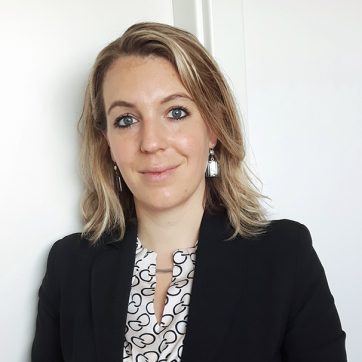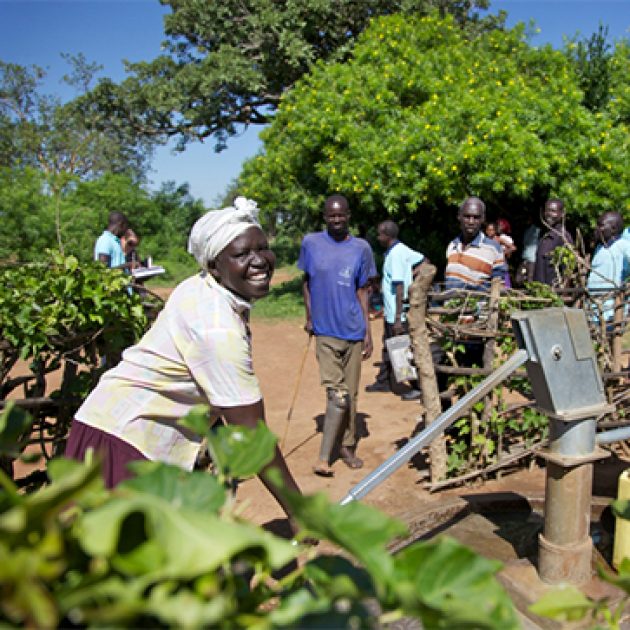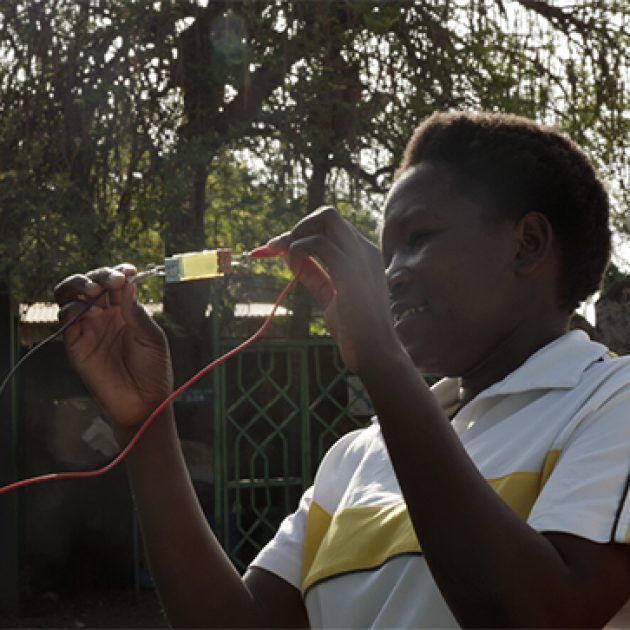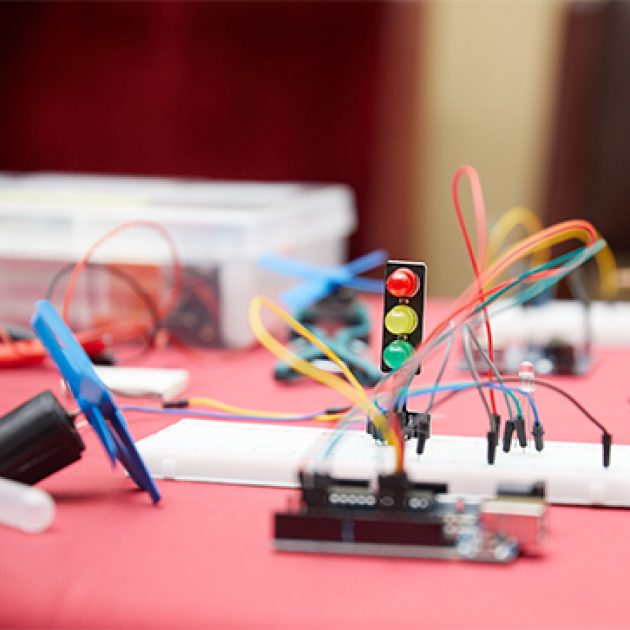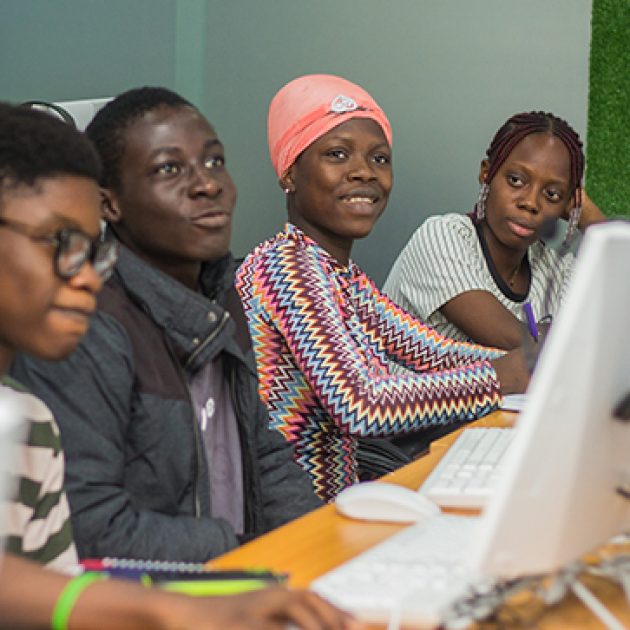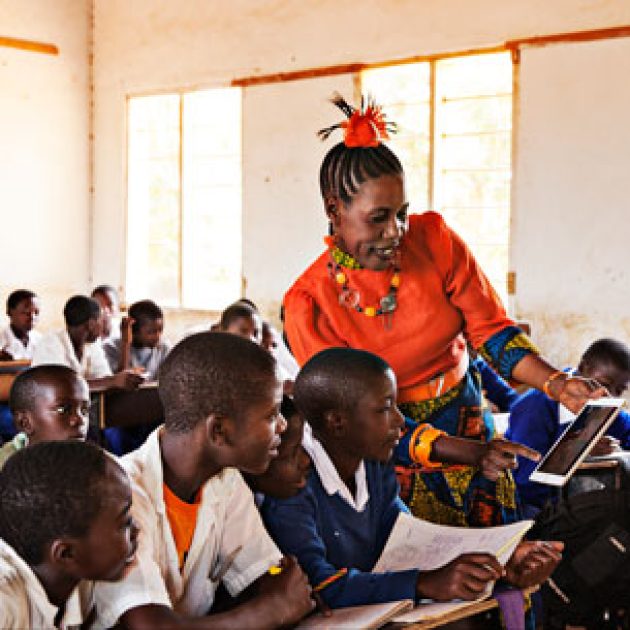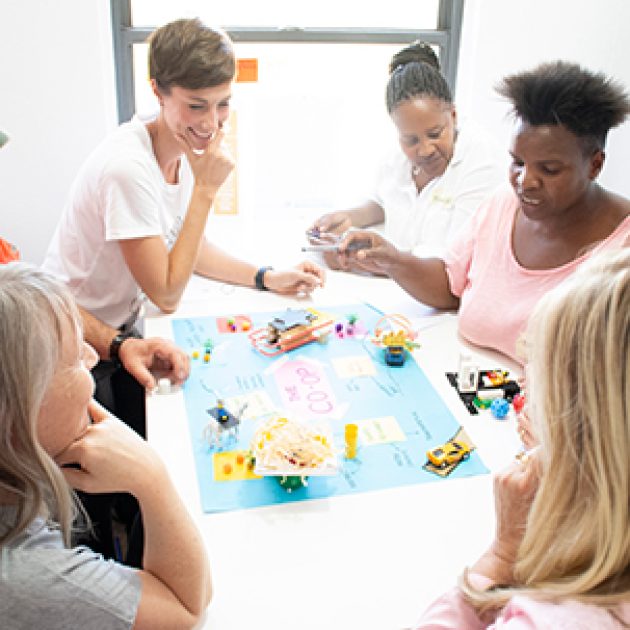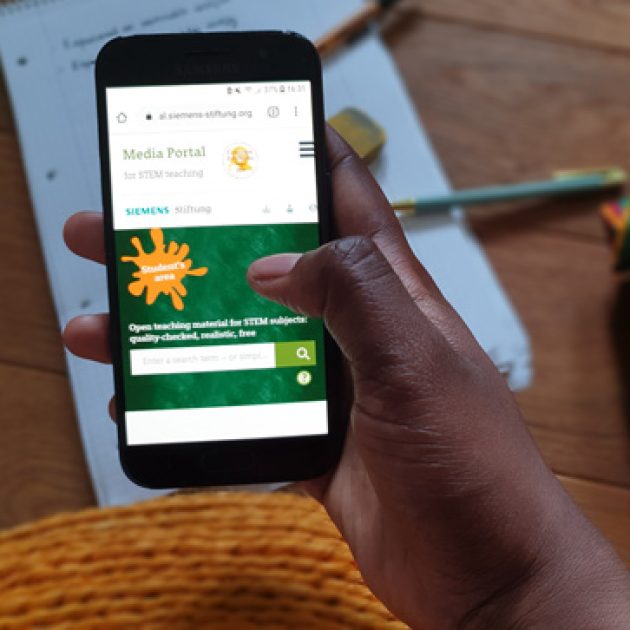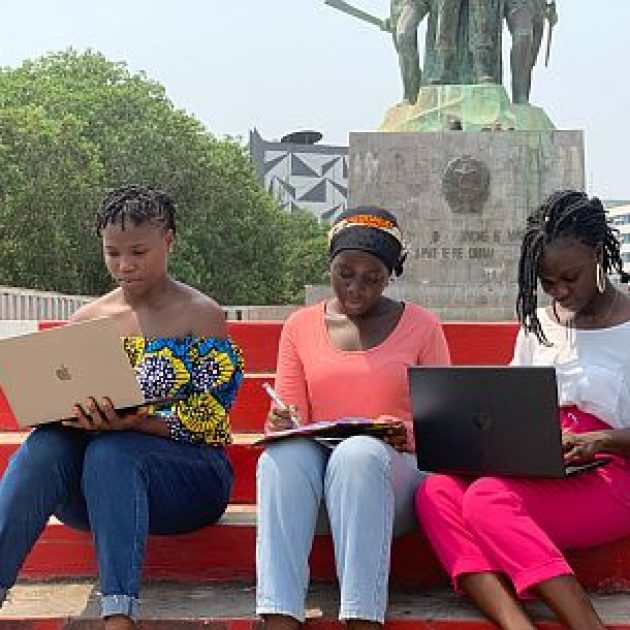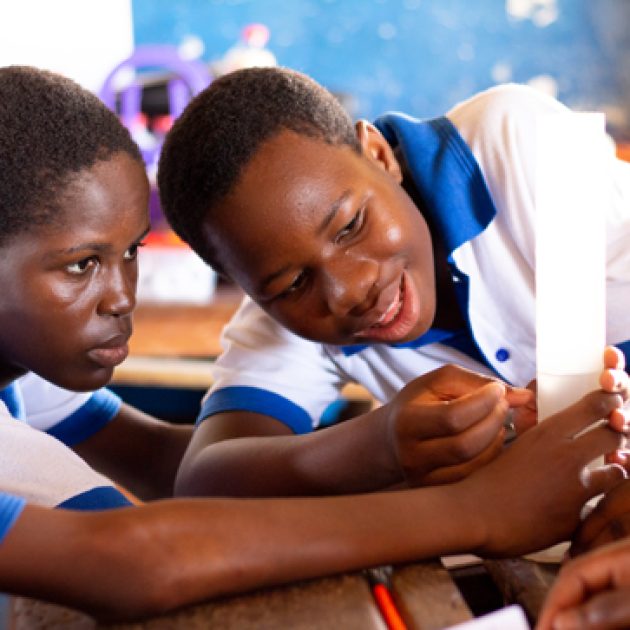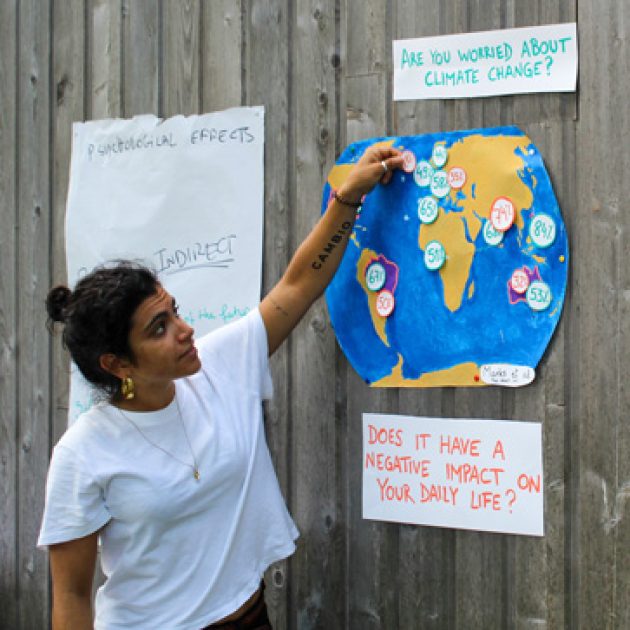World Youth Skills Day 2024
African youth at the crossroads of educational opportunities and systemic change
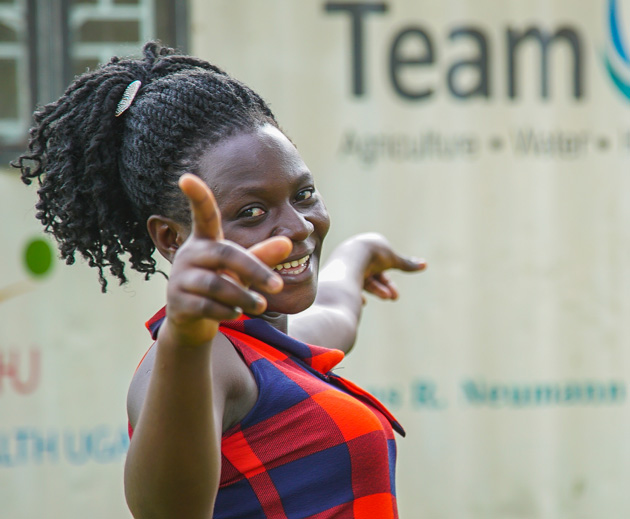
As World Youth Skills Day approaches on July 15, 2024, global attention turns to the immense potential of young people worldwide, with a particular focus on Africa – home to the world’s largest youth population. In sub-Saharan Africa, where our project work is primarily concentrated, an astounding 70% of the population is under 30 years old (UN 2024). This demographic reality underscores the critical importance of education as the cornerstone for building a sustainable and prosperous future for all. Many of our projects are specifically designed to address this educational imperative. However, recent protests in Kenya and other African nations have brought a crucial insight to the forefront: education alone is not enough, youth wants to be involved in political decision-making and wants their voice to be heard. To truly unlock the full potential of Africa’s young generation, the underlying systemic and structural issues must also be addressed. Where can we start?
Celebrating Africa's youth potential
As we mark World Youth Skills Day, we celebrate Africa’s youth – their innovative spirit and determination to address continental challenges. From Nairobi’s tech hubs to Lagos’ social movements, their creativity and potential is undeniable. To harness this potential, all stakeholders must work together to bridge the gap between education and real-world application. This requires a holistic approach encompassing skills development, job creation, entrepreneurship support, and working with local stakeholders on policy barriers and systemic challenges.
Creating an environment for growth
At Siemens Stiftung, we collaborate with local partners on model projects in STEM education and social entrepreneurship in sub-Saharan Africa. Our goal is to foster crucial competencies, enabling equal opportunities and active participation in a digital, sustainable culture. While doing this, the challenge lies in creating an environment that not only nurtures talent but provides fertile ground for it to flourish. By addressing both educational needs and broader systemic challenges that hinder youths being involved in political decision making and societal transformation, we can unlock the potential of Africa’s youth, driving positive change across the continent.
«The transition into professional life is crucial. In addition to future-oriented curricula and well-trained teachers, role models and targeted support are important.»
Rebecca Ottmann, Project Manager for Vocational Orientation in Africa
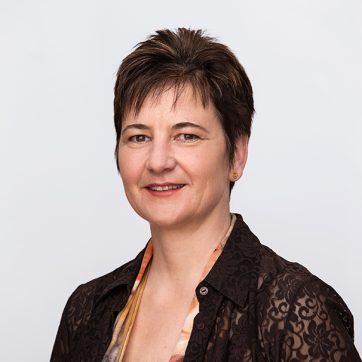

«Social entrepreneurial skills are key to creating more jobs, fostering economic diversity, and developing innovative solutions for local challenges.»
Christine Janezic, Head of Social Entrepreneurship at Siemens Stiftung
Three project approaches
A new generation of young people in Africa’s urban and rural areas stands on the threshold of their professional lives. To reach their full potential, they need more than theoretical knowledge. Our experience shows that success lies in combining future-oriented skills, practical application, and targeted support – always in relation to the respective environment. Career guidance in sustainable industries is therefore of particular concern to us, especially in rural regions.
Practical skills for green technologies
In collaboration with the social enterprise WeTu, we have developed WeLearn, a four-week training program where young people in rural Kenya acquire technical and entrepreneurial skills for the green economy – and not just theoretically. In WeTu centers, which serve as real-world learning laboratories, they gain practical experience: operating solar pumps, working at charging stations for electric vehicles, and installing solar panels.
Targeted support for young women
In addition to knowledge transfer, we also offer career guidance and support with certification. After all, only those who know the possible perspectives can use them. We place particular focus on supporting women. Too often, we have seen talented young women not continue on their path. Through role models and targeted support, we have been able to change this: A significant proportion of our female participants have now embarked on a path in the green economy.
Africa-wide e-learning platform
In cooperation with the German Society for International Cooperation (GIZ), we have also developed Web-Based Trainings (WBT) for vocational orientation in STEM careers, which are available on the African e-learning platform atingi.
African nations are increasingly adopting competency-based learning in their curricula, particularly in STEM fields. This approach emphasizes practical application of knowledge for national development, spanning sectors from renewable energy to digital society. The shift to competency-based curriculum (CBC) aims to prepare students for 21st-century workforce demands and address local challenges. It focuses on developing applicable skills, attitudes, and competencies rather than just theoretical knowledge.
Embracing competency-based learning
This reorientation presents significant challenges for teachers. They often lack insights into modern professional fields themselves. In collaboration with national education stakeholders, we support educators with “Hands-on – Minds-on” materials and web-based training to teach STEM in a contemporary and practice-oriented manner. In Ghana, for example, we offer with Experimento a certified teacher training program on using Arduino microcontrollers and ICT skills in the classroom, in partnership with the Ghanaian Ministry of Education.
Advancing computational thinking
The BeMINT project in Nigeria offers IT training for school graduates, with a special focus on girls from low-income families. The project is funded by the German Federal Ministry for Economic Cooperation and Development (BMZ) and supported by the Delegation of German Industry and Commerce in Nigeria (AHK Nigeria). Siemens Stiftung implements this project in collaboration with the Lagos State Universal Basic Education Board and the local non-governmental organization “Empowering Africans through Education Initiative” (EAE).
Empowering youth through technology
Beyond technical skills, these programs aim to foster critical thinking, problem-solving, and innovation – essential competencies for youth to become change-makers in their communities. By equipping young Africans with digital skills, we’re not just preparing them for jobs; we’re enabling them to create solutions for local challenges and potentially disrupt traditional industries.
Bridging the digital divide
Connectivity, especially in rural areas, continues to be a challenge in this context. Efforts to provide access to energy and the internet remain an absolute priority. In collaboration with BLUETOWN, schools in rural Ghana are gaining access to the internet and digital learning materials (OER) for STEM subjects through the AccessSTEM program. In addition, as part of the Smart Energy Solutions for Africa (SESA) project, we are working with partners in nine African countries on improving affordable access to energy for rural and remote communities.
Education alone is not enough. That’s why the TeamUp program adopts a multidimensional approach. This cross-sectoral initiative by the German Federal Ministry for Economic Cooperation and Development (BMZ), the Deutsche Stiftung Weltbevölkerung, the Hanns R. Neumann Stiftung and Siemens Stiftung, along with local partners Action 4 Health Uganda and Whave Solutions, supports youth with a holistic approach to explore job opportunities, actively participate in public and political life, and lead healthy, self-determined lives. The goal is not just to educate young people, but to provide them with the tools and network to act as entrepreneurs and leaders in their communities.
Innovation fund for changemakers
As part of the TeamUp Innovation Fund, a coaching and mentoring program at the Social Innovation Academy (SINA) trains young people to become social entrepreneurs and changemakers. The focus is on climate, environment, health, and income generation, with at least 50% of participants being women. In the second step, selected participants are trained to replicate the program in other regions.
Empowering voices for change and decision-making
TeamUp empowers participants to address local challenges through innovative, sustainable solutions while also equipping them with advocacy skills. This dual approach not only creates job opportunities but also fosters a sense of ownership among youth for their communities’ development. By actively empowering youth to engage with policymakers, TeamUp promotes on all levels that young voices are heard in decision-making processes that affect their futures. This comprehensive strategy goes beyond trainings and entrepreneurship support, aiming to cultivate a generation of youth who are both problem-solvers and active participants in their societies.
Regional model projects as catalysts
TeamUp in Uganda demonstrates that sustainable changes are possible through targeted support. The challenge lies in using such regionally limited projects as models for larger, systemic changes. To increase its reach, TeamUp seeks partnerships with governments, the private sector, and NGOs to replicate its model across other regions.
A new generation of young people in Africa’s urban and rural areas stands on the threshold of their professional lives. To reach their full potential, they need more than theoretical knowledge. Our experience shows that success lies in combining future-oriented skills, practical application, and targeted support – always in relation to the respective environment. Career guidance in sustainable industries is therefore of particular concern to us, especially in rural regions.
Practical skills for green technologies
In collaboration with the social enterprise WeTu, we have developed WeLearn, a four-week training program where young people in rural Kenya acquire technical and entrepreneurial skills for the green economy – and not just theoretically. In WeTu centers, which serve as real-world learning laboratories, they gain practical experience: operating solar pumps, working at charging stations for electric vehicles, and installing solar panels.
Targeted support for young women
In addition to knowledge transfer, we also offer career guidance and support with certification. After all, only those who know the possible perspectives can use them. We place particular focus on supporting women. Too often, we have seen talented young women not continue on their path. Through role models and targeted support, we have been able to change this: A significant proportion of our female participants have now embarked on a path in the green economy.
Africa-wide e-learning platform
In cooperation with the German Society for International Cooperation (GIZ), we have also developed Web-Based Trainings (WBT) for vocational orientation in STEM careers, which are available on the African e-learning platform atingi.
African nations are increasingly adopting competency-based learning in their curricula, particularly in STEM fields. This approach emphasizes practical application of knowledge for national development, spanning sectors from renewable energy to digital society. The shift to competency-based curriculum (CBC) aims to prepare students for 21st-century workforce demands and address local challenges. It focuses on developing applicable skills, attitudes, and competencies rather than just theoretical knowledge.
Embracing competency-based learning
This reorientation presents significant challenges for teachers. They often lack insights into modern professional fields themselves. In collaboration with national education stakeholders, we support educators with “Hands-on – Minds-on” materials and web-based training to teach STEM in a contemporary and practice-oriented manner. In Ghana, for example, we offer with Experimento a certified teacher training program on using Arduino microcontrollers and ICT skills in the classroom, in partnership with the Ghanaian Ministry of Education.
Advancing computational thinking
Funded by the German Federal Ministry for Economic Cooperation and Development (BMZ) and supported by the AHK, the BeMINT project in Nigeria provides IT training for school graduates with a special focus on girls from low-income households. A web-based training on computational thinking introduces teachers to this new method and conveys the most important fundamentals.
Empowering youth through technology
Beyond technical skills, these programs aim to foster critical thinking, problem-solving, and innovation – essential competencies for youth to become change-makers in their communities. By equipping young Africans with digital skills, we’re not just preparing them for jobs; we’re enabling them to create solutions for local challenges and potentially disrupt traditional industries.
Bridging the digital divide
Connectivity, especially in rural areas, continues to be a challenge in this context. Efforts to provide access to energy and the internet remain an absolute priority. In collaboration with BLUETOWN, schools in rural Ghana are gaining access to the internet and digital learning materials (OER) for STEM subjects through the AccessSTEM program. In addition, as part of the Smart Energy Solutions for Africa (SESA) project, we are working with partners in nine African countries on improving affordable access to energy for rural and remote communities.
Education alone is not enough. That’s why the TeamUp program adopts a multidimensional approach. This cross-sectoral initiative by the German Federal Ministry for Economic Cooperation and Development (BMZ), the Deutsche Stiftung Weltbevölkerung, the Hanns R. Neumann Stiftung and Siemens Stiftung, along with local partners Action 4 Health Uganda and Whave Solutions, supports youth with a holistic approach to explore job opportunities, actively participate in public and political life, and lead healthy, self-determined lives. The goal is not just to educate young people, but to provide them with the tools and network to act as entrepreneurs and leaders in their communities.
Innovation fund for changemakers
As part of the TeamUp Innovation Fund, a coaching and mentoring program at the Social Innovation Academy (SINA) trains young people to become social entrepreneurs and changemakers. The focus is on climate, environment, health, and income generation, with at least 50% of participants being women. In the second step, selected participants are trained to replicate the program in other regions.
Empowering voices for change and decision-making
TeamUp empowers participants to address local challenges through innovative, sustainable solutions while also equipping them with advocacy skills. This dual approach not only creates job opportunities but also fosters a sense of ownership among youth for their communities’ development. By actively empowering youth to engage with policymakers, TeamUp promotes on all levels that young voices are heard in decision-making processes that affect their futures. This comprehensive strategy goes beyond trainings and entrepreneurship support, aiming to cultivate a generation of youth who are both problem-solvers and active participants in their societies.
Regional model projects as catalysts
TeamUp in Uganda demonstrates that sustainable changes are possible through targeted support. The challenge lies in using such regionally limited projects as models for larger, systemic changes. To increase its reach, TeamUp seeks partnerships with governments, the private sector, and NGOs to replicate its model across other regions.
«Without youth participation and involvement at all levels, all efforts fall short of their potential. Regional projects that work with political stakeholders can serve as catalysts in this regard.»
Elisabeth Biber, Project Manager for TeamUp Innovation Fund
